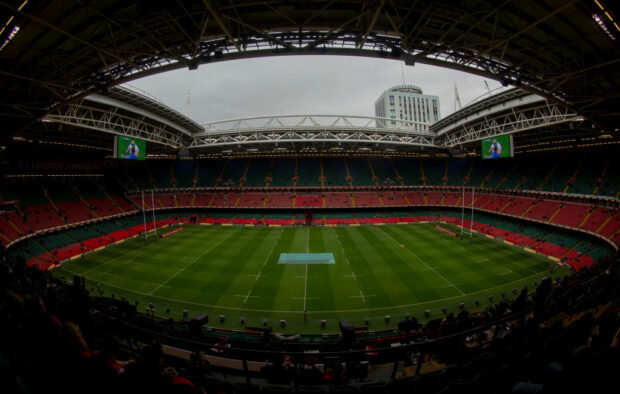Wales are looking at Twickenham as a temporary venue for their home matches in a revised international schedule this autumn.
Despite widespread speculation about a return to Wembley, The Rugby Paper understands that the home of English rugby, not football, is the preferred option.
Preliminary Anglo-Welsh talks on the subject have been given some urgency following Welsh Government warnings of no spectators being allowed to attend matches in Cardiff for the rest of the year.
Faced with the choice of staying at home without a crowd or going elsewhere to find one, the Welsh Rugby Union are exploring what chairman Gareth Davies described last Friday as ‘all options'.
RFU hopes of being allowed to accommodate 40,000 under more relaxed social-distancing rules makes Twickenham a sound business proposition on both sides of the Severn Bridge.
Wales are due to play five home Tests in the autumn, starting with the Six Nations fixture against Scotland, rearranged for October 31. The November series (Fiji, New Zealand, Argentina and South Africa in Cardiff on successive weeks) is likely to be replaced by an emergency Six Nations.
Even Twickenham at half capacity offers the WRU a more rewarding experience than staying at home in front of 74,500 empty seats at the Principality Stadium.
The RFU, in the same dire financial straits as every other union, would take a cut of the gate as their rental fee, provided they can fit the extra matches into their own congested calendar.
As well as keeping all the money in the game, Twickenham offers fans travelling from south Wales easier access than Wembley. Wales may have lost their last five matches at Twickenham but famous victories there during the 2015 World Cup and two earlier Grand Slams have endeared the venue to many.

England are slated to play the All Blacks, Argentina, Tonga and Australia in November. Fears of the pandemic preventing any inter-hemisphere travel has forced them to draw up the contingency plan of playing France, Ireland, Italy, Scotland and Wales instead.
The first Test match since the suspension of the Six Nations in March has been unofficially booked for October 10 – All Blacks v Wallabies in Wellington, the first of a four-match Bledisloe Cup series.
If played on successive weekends, the quartet would finish on November 7, the day the All Blacks are supposed to be at Twickenham and the Wallabies in Dublin. The Rugby Paper reported early last month that New Zealand were resigned to cancelling their European tour on government advice.
Six England matches from the last day of October until the first week of December has caused inevitable conflict with the Premiership clubs, ready to fight their corner rather than lose their best players for a six-week stretch.
The French Top 14 are wrestling with their union, the French Rugby Federation, over the same issue. France have asked them to release their players for six matches this autumn, including the Ireland one postponed from March.
The French clubs have made a stand, that they would consider accepting five but no more. The presidents of their Top 14 held emergency talks over the weekend before finalising their response ahead of the World Rugby ‘summit' on Tuesday.
The refusal of the Anglo-Welsh Leagues to condense their ten-month campaigns and fit into a global season involving summer competition suggests that a formal agreement this week is unlikely.
“We have a good relationship with the Premiership clubs in England,'' Alain Tingaud, vice-president of the Top 14 told The Rugby Paper. “If we do too many international matches, they have a big impact on our leagues. These are very complicated and challenging times.”
PETER JACKSON


























